“It’s inspiring being so close to groundbreaking research and knowing that we are shaping the environment that enables it.”
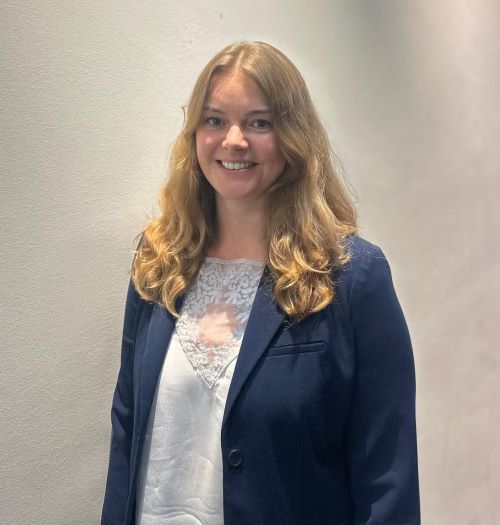
Paige Noyce is Associate Director of Imperial Global Singapore, a research hub based at the National University of Singapore (NUS) campus where scientists work closely with university, industry, government and third-sector partners in the region.
She joined Imperial in 2018 and worked in several roles in the Faculty of Natural Sciences where she delivered key operational projects and supported funding grants.
Paige’s current role involves overseeing everything from finances and HR processes to engaging alumni, working with student recruitment and building connections with collaborators.
Supporting international research
“Supporting research groups on an international scale is something that I really enjoy. You can see the direct impact of managing operations and improving processes. By refining how we operate, we’re unlocking greater impact for science, policy, and society. It’s inspiring being so close to groundbreaking research and knowing that we are shaping the environment that enables it.
“In Singapore, government plays a central role in funding research. Building strategic partnerships with government agencies is an important – and enjoyable – part of my role. We’ve been very fortunate to work closely with several government representatives, as well as the British High Commission, and look forward to further opportunities for collaboration and visits between Imperial and the Hub in the coming months.”
One of the highlights of her role so far has been celebrating the one-year anniversary of the hub, and its growth from a two-person team to a full office of 26 staff.
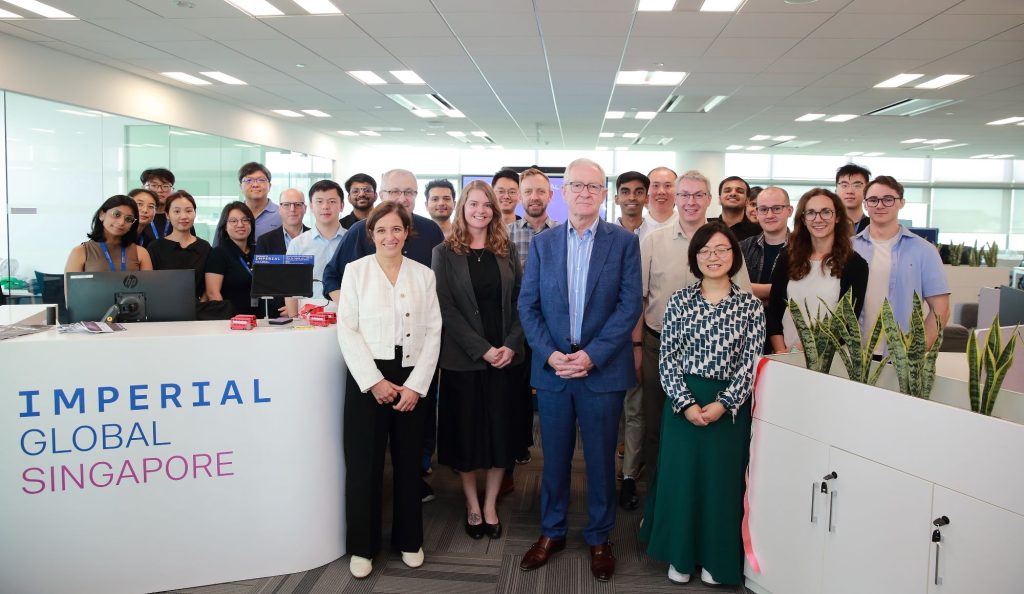
“Professor Anil Bharath and Alex Page laid the foundations for the hub and it’s been amazing to see the impact of their work since its inception, now continued by Professor Azra Ghani and myself. The one-year anniversary was a great celebration of this achievement, and of Imperial’s presence in Singapore.”
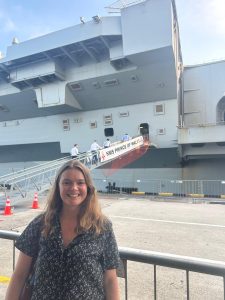
Another highlight for Paige was being included in celebrations for the 60-year anniversary of UK-Singapore relations, which involved a visit on board the HMS Prince of Wales alongside colleagues from UK universities and the British Council.
A launchpad for collaborations
Imperial Global Singapore supports research and education partnerships in Singapore and the wider region, acting as a place where people from Imperial can touch down and make meaningful research connections.
“We’re creating a knowledge bridge between countries, with opportunities and a flow of talent and idea to enable and empower the brightest minds around the world to address global challenges together.”
The hub itself is situated on the CREATE campus at NUS, which hosts researchers from universities from across the world, including MIT, Berkley, and Cambridge.
“It’s a unique environment to work in where world-class researchers are steps away from colleagues at other institutions. This proximity accelerates collaboration and innovation in ways rarely seen elsewhere.”
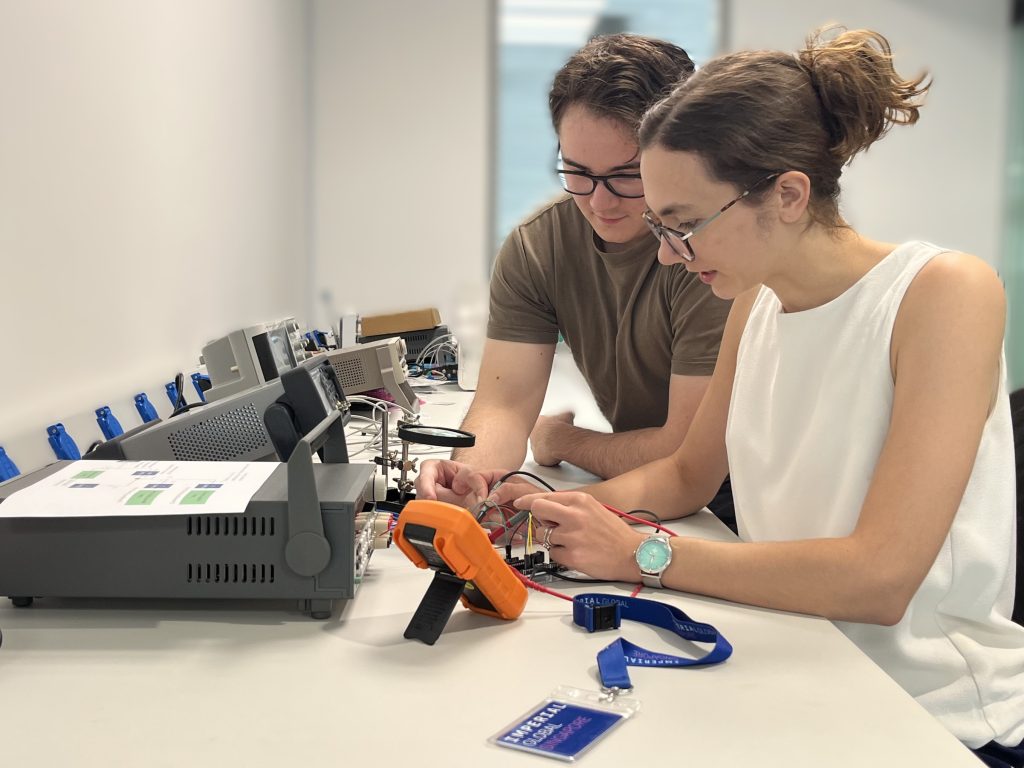
There are several strands of research taking place at the hub and covering shared challenges in energy, health, climate public safety and security, and green finance. These include a decarbonisation programme exploring the potential for building solid oxide fuels using green ammonia and IN-CYPHER, and a collaboration with Nanyang Technological University Singapore (NTU Singapore) focused on healthcare cybersecurity and AI. The hub is also exploring a partnership with HTX (Home Team Science and Technology Agency) in public safety and security research. In addition, Professor Azra Ghani, Academic Director of Imperial Global Singapore, and her research specialties have opened new avenues for collaboration in Singapore in areas such as anti-microbial resistance and pandemic preparedness, such as her involvement with the Ministry of Health’s PREPARE programme.

Get involved
Paige emphasises that the hub is a great physical space for Imperial researchers to visit, and the team are always open to enquiries about collaborations. She recommends that individuals begin by exploring existing relationships within their department as a starting point, noting that there are lots of Imperial researchers already connected to Singapore.
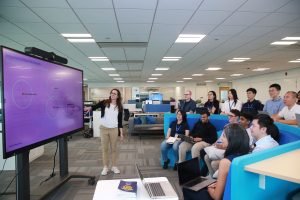
“Networks are important in the Singapore research ecosystem, so a great starting point is utilising those existing connections within Imperial. We also share a lot of news and opportunities on our LinkedIn page, which we encourage people to follow if they’re interested in working in this space.
“We’re continually exploring how we can best act as a launchpad for those collaborations – in particular, how we build an effective structure to enable people to come and collaborate internationally. One of our strengths is agility, we operate similar to a startup environment, which enables us to be particularly efficient in some areas.”
She also points to the Imperial Global Connect Fund, a rolling seed fund that’s open to all researchers, academics and professional services staff at Imperial.
“The fund recognises that many funding schemes require fully formed ideas and grand plans, whereas this seeks to fill that gap to enable the growth of ideas and partnerships.”
The fund can be used to pay for things like workshops, hackathons and for exchanging teaching methods, or for conferences and training.
In addition, Paige highlights the National University of Singapore-Imperial Collaboration Fund and NTU – Imperial Education Seed Fund as alternative routes for funding.
Read next
Find out more about Imperial Global Singapore
Follow Imperial Global Singapore on LinkedIn
Find out more about the Imperial Global Connect Fund